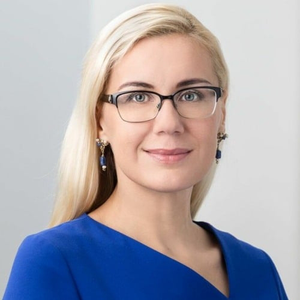
Kadri Simon
European Commissioner (Minister) for EnergyAppointed in 2019, Kadri Simson has been the EU’s Energy Commissioner during a period of extraordinary crisis and transition. She is a key leader in the delivery of the von der Leyen Commission’s flagship policy framework, the European Green Deal, and the EU’s response to the unprecedented challenges to Europe’s energy security following Russia's invasion of Ukraine and its weaponisation of gas supplies.
Prior to that, she serves as Estonia’s Minister for Economic Affairs and Infrastructure from 2016. She is a member of the Estonian Centre Party. From 2007 to 2016, she was a member of Estonia’s Parliament. From 2009 to 2016, she served as chairman of the Estonian Centre Party, and from 2007 to 2009, the deputy chairman of the National Defence Committee. In 2013, she was elected to the Pärnu City Council and in 2009, she was elected as a member of Tallinn City Council. From 2003 to 2007, she was secretary-general of the Estonian Centre Party. In 2003, she served as a research assistant of the NATO Parliamentary Assembly. From 2001 to 2002, she was the Advisor to the Mayor of Tallinn and in 1999, the Advisor of Tallinn City Council. She is a graduate of Tartu Secondary School No. 10. She acquired a degree in History at the University of Tartu and a Master’s degree in Political Science from University College London.
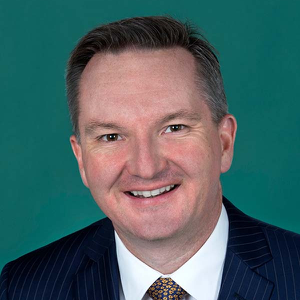
The Hon Chris Bowen MP
Australian Federal Minister for Climate Change and EnergyChris Bowen is a senior Cabinet Member in Australian Government, currently serving as Australia’s Minister for Climate Change and Energy. Elected in May 2022 with a mandate to deliver its ambitious climate plan, the Federal Government has moved swiftly, with the strong backing of Australian business and industry, to define Australia’s pathway to net zero by 2050. One of its first measures, Climate Change Act, entered into force on 14 September 2022. The Act legislates economy-wide targets of reducing net GHG emissions to 43 per cent below 2005 levels by 2030, reducing net GHG emissions to zero by 2050, and embeds the Paris Agreement into existing federal legislation.
Chris Bowen entered Parliament in 2004 and has held a wide range of portfolios including serving as Treasurer, Minister for Human Services, Minister for Immigration, Minister for Financial Services, Assistant Treasurer, Minister for Competition Policy, Minister for Small Business and Minister for Tertiary Education. Chris has been responsible for a range of significant policy reform programs in these portfolios. He served as Interim Leader of the Labor Party and Acting Leader of the Opposition following the 2013 Federal election and served as Shadow Treasurer.
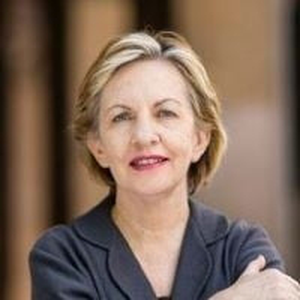
Professor Mary O'Kane AC
incoming Chair of the Australian Energy Market Operator (AEMO) and former Chief Scientist & Engineer of NSWOne of Australia’s most eminent scientists and engineers, with deep public policy and governance experience, Professor Mary O'Kane AC will become Chair of the AEMO on 2 April 2024. In the energy sphere, Professor O'Kane has served as Chair of the Board of the Australian Centre for Renewable Energy; a Member of the Independent Review into the Future Security of the National Electricity Market; Chair of the NSW Energy Security Taskforce; and Chair of Aurora Energy. Professor O’Kane was the inaugural Chief Scientist & Engineer of New South Wales, is the current Chair of the Independent Planning Commission of NSW and Sydney Health Partners, along with directorships at AEMO Services, Silver Chain Group and Sydney Water.
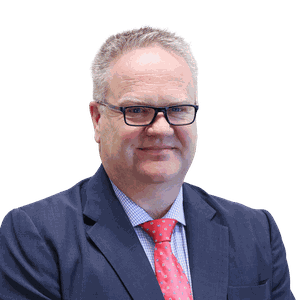
Brett Wickham
Managing Director of ACCIONA Energy AustraliaEABC Board Member Brett Wickham serves as Managing Director of EABC Major Partner ACCIONA Energía. ACCIONA Energía is the largest 100% clean energy company in the world, and with no fossil fuel legacy since its establishment. It has 11GW of renewable energy in 16 countries and is on track to double its current renewable energy generation capacity to reach 20 GW. ACCIONA Energía has a strong development pipeline of over 3, GW of wind and solar projects to support Australia’s transition to a low carbon energy supply over the coming years, including its MacIntyre windfarm precinct, which is the already the largest wind project in Australia and the Southern Hemisphere. The Spanish energy and construction giant plans to massively expand its investment in Australian renewable projects over the next five years, targeting 6 GW with an of $26 billion.
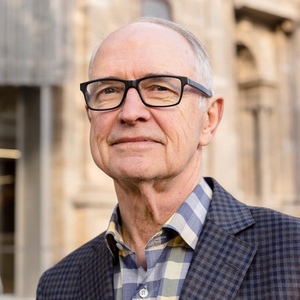
Professor Ross Garnaut AC
Director for ZEN Energy, and Member of the Net Zero Economy Agency Advisory BoardRoss Garnaut AC is one of Australia’s leading economists and public policy thinkers, currently serving on the Advisory Board of the Government’s new Net Zero Economy Agency and as a Director of EABC Corporate Partner Zen Energy, the Superpower Institute and as Chair of Renergi. He has been a key adviser to Australian Governments for many decades including as Principal Economic Adviser to Prime Minister Bob Hawke and Australian Ambassador to China. He has led many high-level government reviews, including the renowned 2008 Garnaut Climate Change Review. He is the author of bestselling books on climate and energy policy including Superpower: Australia's Low-Carbon Opportunity and The Superpower Transformation.
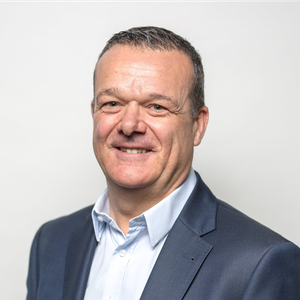
Martin Merrick
CEO of Volvo Group AustraliaEABC Board Member Martin Merrick serves as CEO of EABC Major Partner Volvo Group Australia. Swedish multinational Volvo Group is one of the world's leading transportation, mobility and construction equipment providers and a leader in decarbonisation of the transport sector. Volvo Group's target is to have 35% fully electric sales by 2030 and to be net-zero in its value chain by 2040. In Australia, the group is a pioneer in the manufacturing, distribution and operation of low emissions battery electric powered trucks and buses, having established its presence in Australia in 1972. Volvo was the first manufacturer to successfully trial and launch a heavy-duty electric truck range in Australia and will be the first to build them here when production commences in 2027.
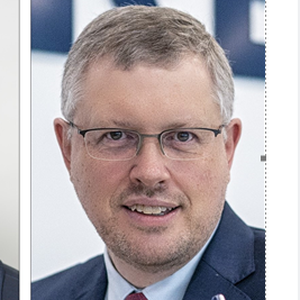
Stephen Forshaw
Chief Representative at Airbus Australia, New Zealand and the PacificEABC Board Member Stephen Forshaw serves as CEO of EABC Major Partner Airbus Australia Pacific. As the largest aeronautics and space company in Europe and a worldwide leader, Airbus is committed to leading the decarbonisation of the aerospace sector. This includes reducing its own industrial footprint (including by sourcing 100% renewable energy for its sites) and drastically reducing the CO2 emissions of its aircraft, helicopters, satellites and launch vehicles. Sustainable aviation fuels (SAF) are the most significant tool airlines currently have to reduce their associated emissions, and as such, Airbus is increasing the use of SAF in its own operations and investing heavily to create SAF markets in countries like Australia, including through the establishment of a joint US$200 fund with Qantas in 2022.